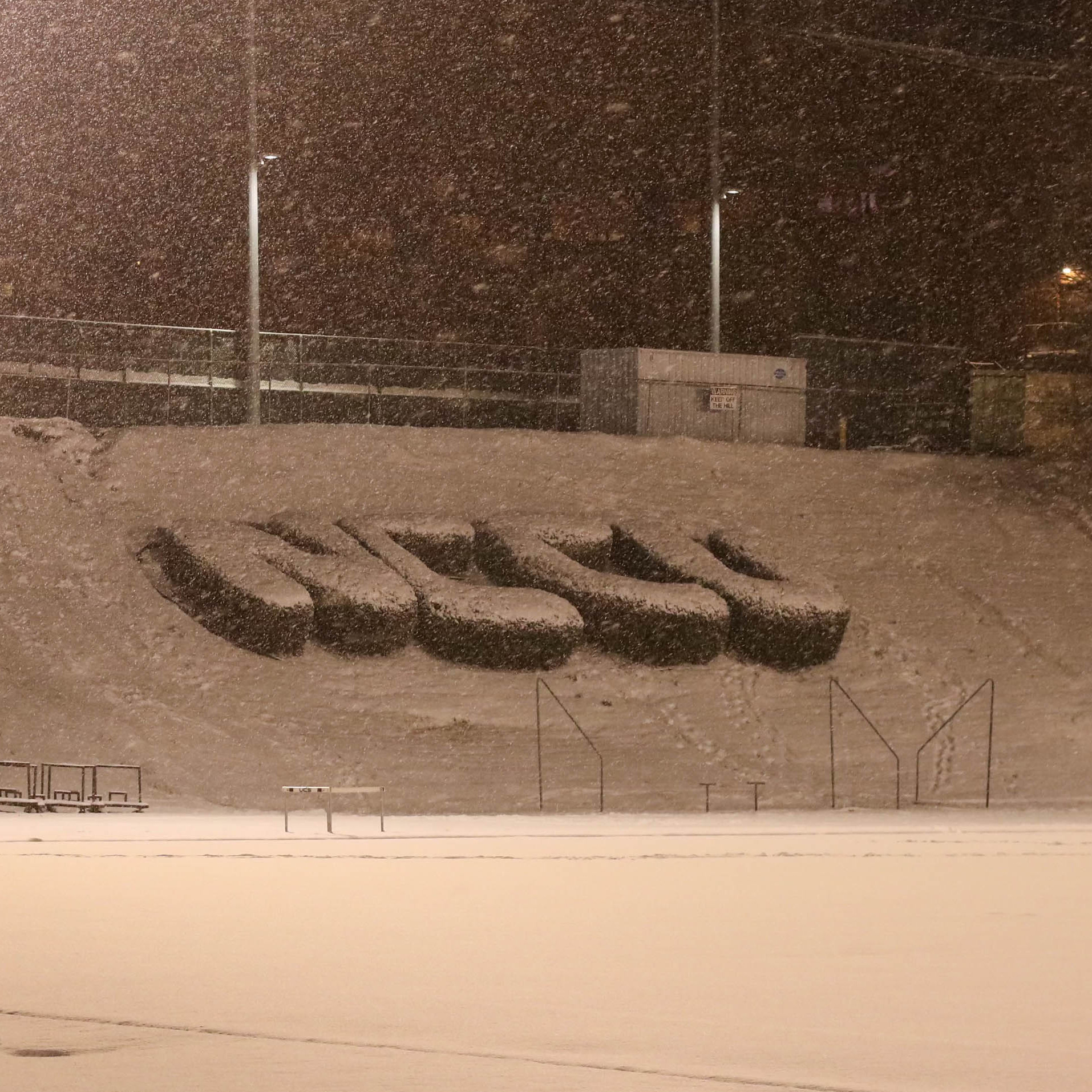Pedestrians returning to the road during the storm, or too soon before the roads thaw, is the biggest concern for employees in Durham’s Public Works Department, said Nicholas Ward in a Feb. 9 phone interview.
Ward is a senior maintenance specialist in Durham Public Works. His regular duties include paving roads as a crew chief in the asphalt division. He has worked for the city for seven years and has held his current position for four. During the winter season, he drove a salt truck, clearing critical roadways for the community.
Q: Can you break down the preparation before the day of the storm?
NICHOLAS WARD: We will suit up all the trucks, make sure everything works, and do maintenance on things that need to be fixed. That way, we won’t be caught with a storm coming in and stuff not working, which would create a lot of chaos. Months ahead, we’re ensuring that we will be okay when inclement weather does come.
Q: What is done in the hours leading up to landfall?
WARD: Usually, when we know there’s a storm coming, we will have the trucks suited up two or three days ahead of time. We ensure that our brine trucks are full so we can go ahead and do the brine routes first. Brine is a liquid salt that we lay down on the roads to help melt stuff from the bottom as it starts accumulating on the roads.
Q: Could you elaborate on what this “brine” mixture is?
WARD: The brine is a salt-water mixture. We usually keep it between 20% and 24% solidity. So we spread it, and it’ll look like water coming out of the back of the truck. But once the water evaporates off the road, it leaves a thin salt layer over the pavement. Once the snow, ice and stuff start falling, they will start melting right from the bottom.
Q: How many hours (on average) do you think it takes to get all of that ready in preparation?
WARD: Well, the preparation will be in two or three days. We do eight-hour shifts when it’s not inclement weather. But on the last day, when the snow is coming down, we will do 12-hour shifts.
Q: Besides the brine mixture, what other equipment is used for the roads?
WARD: We use our dump trucks with the V-box spreaders and plows on them. Of course, loaders back those to load salt or salt and sand mixture if we have to use salt and sand mixture.
Q: What is your biggest concern during the storms?
WARD: The main concerns are traffic – pedestrian traffic. Whenever there’s inclement weather, we always suggested that people stay home because North Carolina’s weather is crazy. If you get ice, it’s tough to drive on ice. And if you’re not on the road, it will allow us to take our time, be more cautious of what we’re doing and not get distracted by people trying to pass us. Or cars that lose control in front of us. Our main concern is public safety.
Q: When fellow workers talked to you, what kinds of concerns were on their minds?
WARD: Our main concern is public safety because we’re driving something that weighs 19,000 pounds empty, and then we put another 12 tons on top of that. You’re almost 50,000 pounds with everything trying to drive on snow and ice. And you have cars trying to come around you and pass you and stuff. It puts wear and tear on you mentally, and we would prefer it if everybody who didn’t travel would stay home and be safe.
Q: Has there been any new trends in your work? If so, What?
WARD: I’m not sure of any new trends. I’m sure the brine thing has been newer in the last decade. It’s more popular elsewhere. We don’t get the amount of snow that the other states get. I know other states will have bigger trucks with bigger plows. And they have trailer plows now that they can tow behind them, and it’ll swing out and take a whole other lane. I know there are a lot of developments in the industry, but not so much here.
Q: What sort of outside forces affect your job? If so, how?
WARD: The only outside forces really would be trucks down for maintenance. It takes time to order parts and stuff like that. We have a yearly budget specifically for inclement weather. And depending on what we get, that budget is more effective in some years than others. And then the public is out when we ask them to try to stay home if they don’t have to travel. That’s kind of an outside thing that affects us.
Q: How is the economic situation affecting your job?
WARD: I wouldn’t say it affected us at all. Being a municipality, we have a great team that puts in a plan every year, and it has to be voted through, as well as the funds we have to do every year. Whether asphalt repair, sidewalk repair, stormwater, or even inclement weather, they always ensure enough to make the street safe year-round.
Q: Is there anything I didn’t ask that you believe the public should know?
WARD: Just know that we have a great group of people here. They are dedicated to the work they do. They put their lives in danger coming here. Some come from half a mile away to work for the city to ensure the streets are safe. We can’t be everywhere all at once, but we do our best to respond to any service request promptly.

















